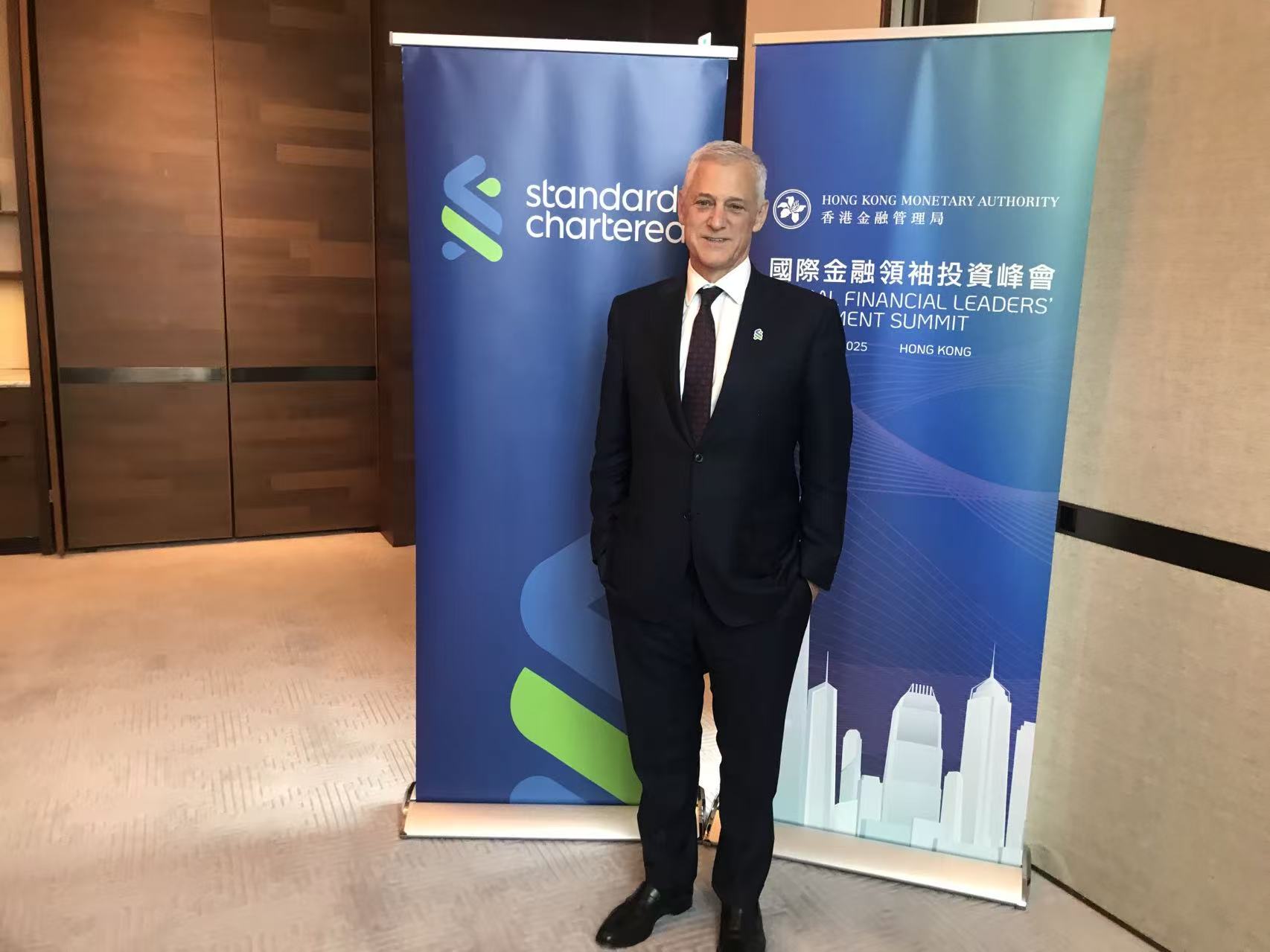
Standard Chartered PLC, a London-based bank with deep roots in Asia and emerging markets, is shifting its strategy to prioritize higher returns, while becoming less capital-intensive, as it plans to channel more resources into wealth management and cross-border financing.
 Bill Winters, group chief executive of Standard Chartered, made these remarks during a group interview. Winters was in Hong Kong last week for the Global Financial Leaders’ Investment Summit, organized by the Hong Kong Monetary Authority (HKMA).
Bill Winters, group chief executive of Standard Chartered, made these remarks during a group interview. Winters was in Hong Kong last week for the Global Financial Leaders’ Investment Summit, organized by the Hong Kong Monetary Authority (HKMA).
The bank announced its thirdquarter results in October, posting a profit before tax of nearly $2 billion, driven primarily by strong doubledigit growth in wealth solutions, global banking, and positive momentum in the global markets flow business.
“We want to be a high-return bank so that we keep on deploying resources into those areas like wealth management, the financial market, as well as fees on payment business and corporate finance, which is less capital-intensive but can generate higher returns,” Winters said.
ALSO READ: Officials: National Games boosts connectivity across GBA
The bank aims to leverage its $850 billion balance sheet intelligently, ensuring it grows in singledigits annually, while delivering enormous returns.
With higher returns generated, Winters said, “The bank will still pay dividends because some shareholders have a preference for dividends.”
Regarding share buybacks, he added, “Even (if) the bank is trading at 1.2 times book value, and roughly seven times the analysts’ expectations for forward earnings; I do not think we will dispose of buybacks altogether.”
As the group’s Hong Kong unit, Standard Chartered Bank (Hong Kong) contributes the majority of the group’s profits.
Additionally, Winters said that Hong Kong plays a huge part in facilitating the group’s broader business. He outlined a clear development road map for Hong Kong: focusing on the wealth management business and cross-border activities, in particular related to the Chinese mainland.
“As Hong Kong is a huge wealth center and global wealth aggregates here, our focus is set on serving the affluent populations across Asia, the Middle East and Africa.
READ MORE: Chan: Robust financial and I&T ecosystem vital for HK’s development
We run our retail wealth management business globally out of Hong Kong to ensure the business scale will be big, fastgrowing, with high returns, and sustainable,” Winters said.
He added that about 35 percent of the group’s new clients are international banking clients with asset management needs, and this segment has registered the fastest growth rate.
Another key area is “cross-border activities in particular related to the mainland, from foreign exchange and associated derivatives trading to access trade for facilitating international investors to invest in the mainland”, Winters said.
He provided an example that Standard Chartered Bank (Hong Kong) can help international investors buy mainland government bonds without going through the Bond Connect program or opening an onshore trading account.
On the local economic front, Winters said that Hong Kong’s economy has performed well, with tourism and trade flows picking up.He acknowledged that the real estate market, particularly the commercial property sector, remains sluggish.
READ MORE: HK market seen poised to grow stronger with better investment prospects
The residential market seems to have bottomed out and is beginning to recover, while the office market continues to struggle due to a lack of new office capacity. He said: “The bank is very happy with its commercial property exposure in Hong Kong, and the bank’s exposure to the residential sector is very safe, so that it does not have an asset quality problem at all in Hong Kong.
“I know other banks have problems; we do not have problems,” he added confidently. Looking ahead, financial technology will be a key growth area.
“In Hong Kong, we have submitted an application to issue a Hong Kong dollar stablecoin. We also have tested a tokenized Hong Kong dollar deposit in the HKMA sandbox,” Winters said.
While this does not alter the existing financial system, tokenized bank deposits could have future potential in Hong Kong. However, interoperability remains a challenge, as different jurisdictions regulate tokenized bank deposits according to their respective financial authorities.
Anticipating the unveiling of the country’s 15th Five-Year Plan (2026- 30), Standard Chartered anticipates the internationalization of the renminbi to be a major policy focus. This initiative has become the single biggest business driver for the group’s Hong Kong unit and even the Asia region, Winters said.
Contact the writer at oswald@chinadailyhk.com


